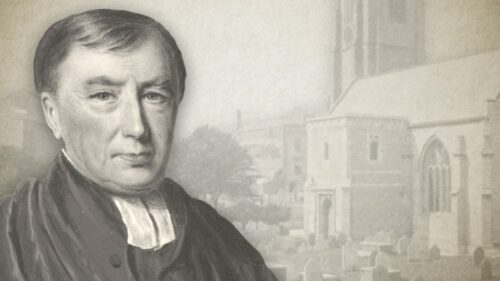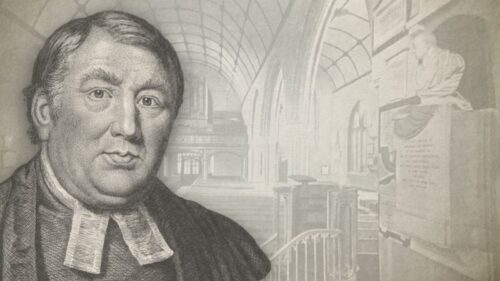
June 28—Morning Devotion
“Carry down the man a present.”—Genesis 43:11
Ah, poor Jacob, how unconscious wert thou that this man, the governor of Egypt, was so near and dear to thee, and that his bowels yearned to tell thee how much he loved thee. And O ye sons of Israel, who would have had power to convince you while you were bowing down before Joseph under the dreadful apprehensions which agitated your minds, and he was assuming a voice of displeasure, that this very man was your brother? My soul, and what was all this, heightened to the greatest possible degree in the real love and affection of Joseph towards his family, compared to that love of Jesus which passeth knowledge? Jesus is thy brother, and he is the governor, not of Egypt only, but of heaven and earth. The famine, it is true, is sore in the land, and to him thou must go for sustenance, or thou wilt perish for ever. But wilt thou carry down the man a present? My soul, what hast thou to carry? Not thy duties, nor thy prayers, thine alms, thy righteousness; these are all filthy rags. Besides, he to whom thou goest needeth not the gifts and offerings of his creatures. His terms are, without money and without price. Go then, my soul, poor and wretched as thou art, go to him with a broken and a contrite heart, for that he will not despise. And O what a volume of mercies, blessings, and graces is contained in that one word of his, when he shall say, I am Jesus, your brother! Precious Jesus, I would say, thou art indeed a brother born for adversity. “Thou art he whom thy brethren shall praise, and all thy father’s children shall bow down before thee.”
Robert Hawker (1753-1827) was an Anglican (High-Calvinist) preacher who served as Vicar of Charles Church, Plymouth. John Hazelton wrote of him:
“The prominent features…in Robert Hawker's testimony…was the Person of Christ….Dr. Hawker delighted to speak of his Lord as "My most glorious Christ.” What anxious heart but finds at times in the perusal of the doctor's writings a measure of relief, a softening, and a mellowing? an almost imperceptible yet secret and constraining power in leading out of self and off from the misery and bondage of the flesh into a contemplation of the Person and preciousness of Christ as "the chiefest among ten thousand and the altogether lovely." Christ and Him crucified was emphatically the burden of his song and the keynote of his ministry. He preached his last sermon in Charles Church on March 18th, 1827, and on April 6th he died, after being six years curate and forty-three years vicar of the parish. On the last day of his life he repeated a part of Ephesians 1, from the 6th to the 12th verses, and as he proceeded he enlarged on the verses, but dwelt more fully on these words: "To the praise of His glory Who first trusted in Christ." He paused and asked, "Who first trusted in Christ?" And then made this answer: "It was God the Father Who first trusted in Christ."
Robert Hawker on the Biblical Covenants (Complete)
Robert Hawker's Poor Man's Morning Portions






